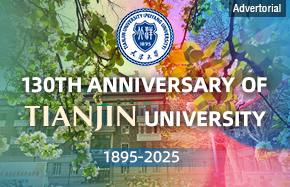American family immersed in Chinese culture

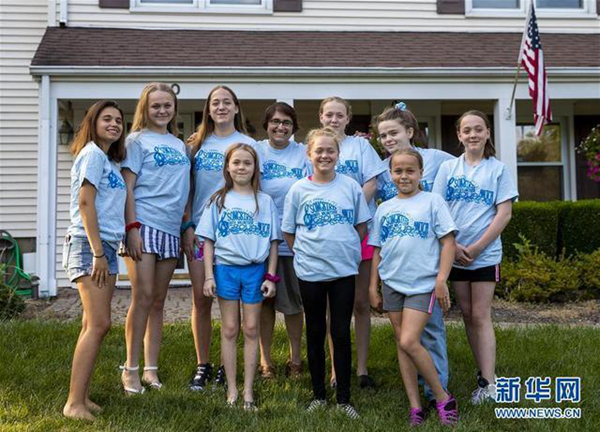
It is becoming increasingly common for non-Chinese-heritage people to learn the Chinese language, as the language is growing in popularity throughout the world. Lynn Berat, who holds two Ph.D.s from Yale University, and her nine daughters are among the non-Chinese Mandarin students. In fact, Berat made sure her children began learning Chinese as toddlers. "I hope my daughters will not only speak the Chinese language, but they will also fully understand Chinese culture and history. That is not negotiable in our family," Berat says.
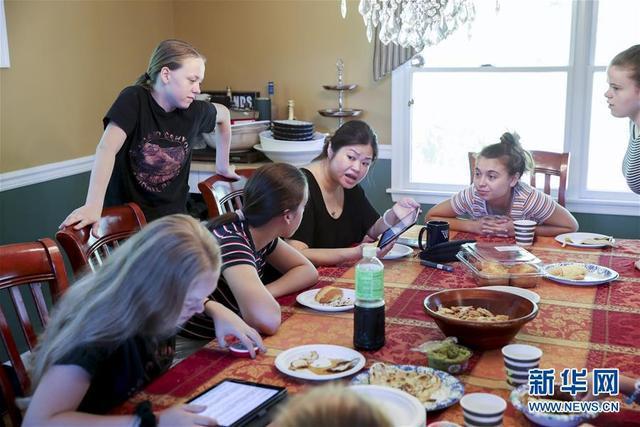
Completely Chinese
Berat, from New York, the United States, fell in love with Chinese culture and history in the early 1980s, when she gave lectures at Peking University, in Beijing. She realized the Chinese language was "pictographic" and "very different" from Indo-European languages.
"It requires a greater effort than a language with an alphabet ... Chinese seemed to be something that they (her children) should learn from infancy. If they were going to learn it, then they needed to be completely bilingual. And so, we are working on that," Berat told Xinhua News Agency.
Berat has maintained a purely Mandarin-speaking environment for her nine girls, now aged 11-19, since they were born. She hired a Mandarin-speaking nanny, and she enrolled her girls in bilingual (Chinese/English) kindergarten and primary schools. She also enrolled her daughters in various extracurricular courses, including Chinese songs, dances and musical instruments.
"Their lives have really been sort of all-Chinese, all the time," Berat says.
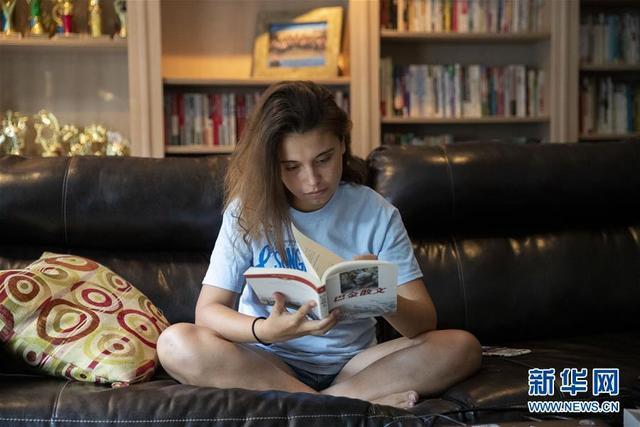
Interestingly, when Berat's youngest girls, twins Logan and Lachlan, attended bilingual pre-kindergarten, at the age of four, both passed the Chinese test, but failed the English test. If their teacher and principal had not known about their older sisters, the twins would have been sent to a school for children with "severe learning disabilities," says Berat.
"I have to say you have no idea how proud I am of that, because, to me, it meant that they were really working hard, with their brains, in Chinese. It kind of indicates the degree of our commitment to Chinese," Berat adds.
In addition to English and Chinese, the girls have learned Spanish and French, and they can speak Albanian, which is Berat's mother tongue.
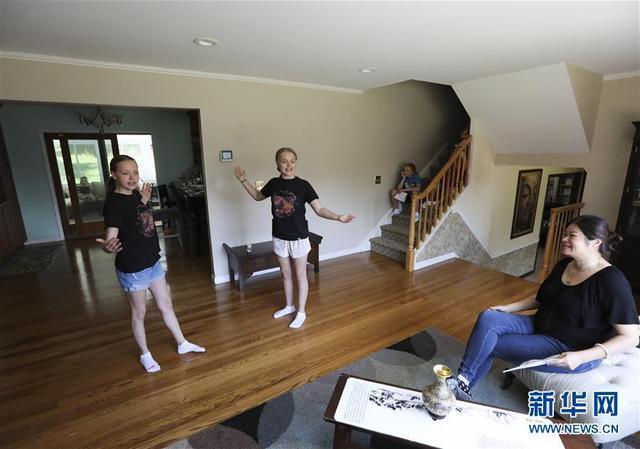
'To be a Global Citizen'
Berat requires her daughters to learn Mandarin in a bid to have them well-prepared to be what she called "citizens of the world."
"To be a global citizen, you really have to know the world, and the more languages and cultures that you know intimately, the better it is (for you). My hope for my daughters from the beginning has been that they will be citizens of the world. We are pushing them in that direction," Berat says.
Berat has visited more than 120 countries. The emerging economies, including China's, have been changing the political, economic and cultural landscapes of the world in recent decades. Mandarin has been gaining in popularity in the US, and in other regions of the world, she adds.
"Chinese is the 'flavor of the month' in many ways," Berat says, borrowing an expression from a local ice cream store pushing "the flavor that's popular at the moment."
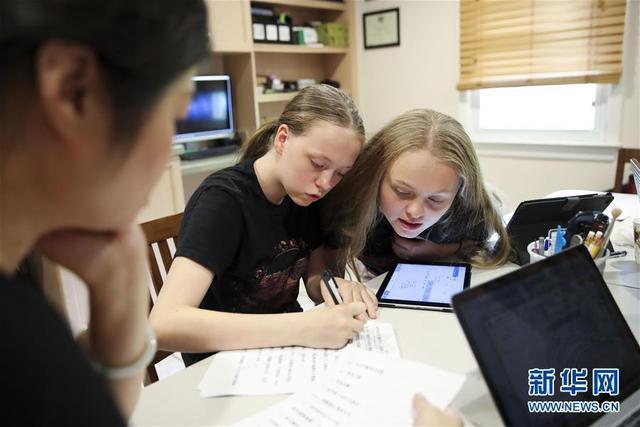
'Lifelong Commitment'
"I thought I was a tiger mom," Berat chuckles when explaining how she managed to have all of her girls study Chinese. "It's not negotiable. They don't complain because they know there is no hope. But then they do it. That's it.
"It's not just textbook learning. This has been their life. Their friends are Chinese. They've been in Chinese cultural knowledge competitions ... it's really been, for them, a lifelong commitment. You know, it really, even for me, is an astonishing lifestyle. But I feel all this effort has been worth it, because they do get it … they've been deeply immersed in Chinese culture," Berat says.
"I think they are also beginning to understand that they have a very unique set of life skills. I think that's a great gift. I don't know how much they realize it's the gift that they have. But I think, as they get older, they will appreciate it increasingly." she adds.
Her oldest daughter, Lindsay, is studying international politics, in Chinese, at the Shanghai campus of New York University. She aspires to find a job in the United Nations after graduation.
"I am very thankful to my mom. Learning Mandarin has opened new windows … and I have had many more opportunities than my peers to experience the world," Lindsay told Xinhua, in fluent Mandarin.
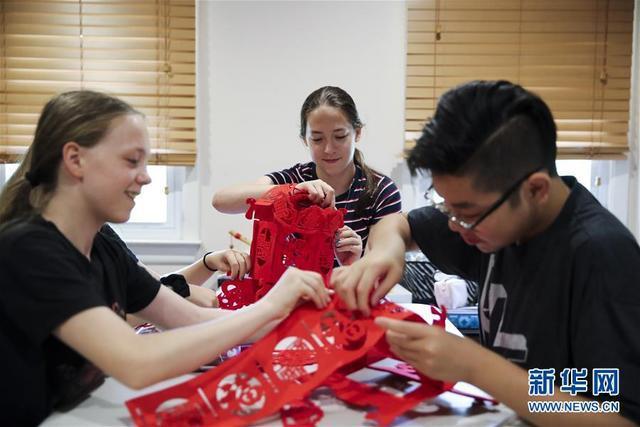
(Women of China English Monthly January 2020 issue)

















